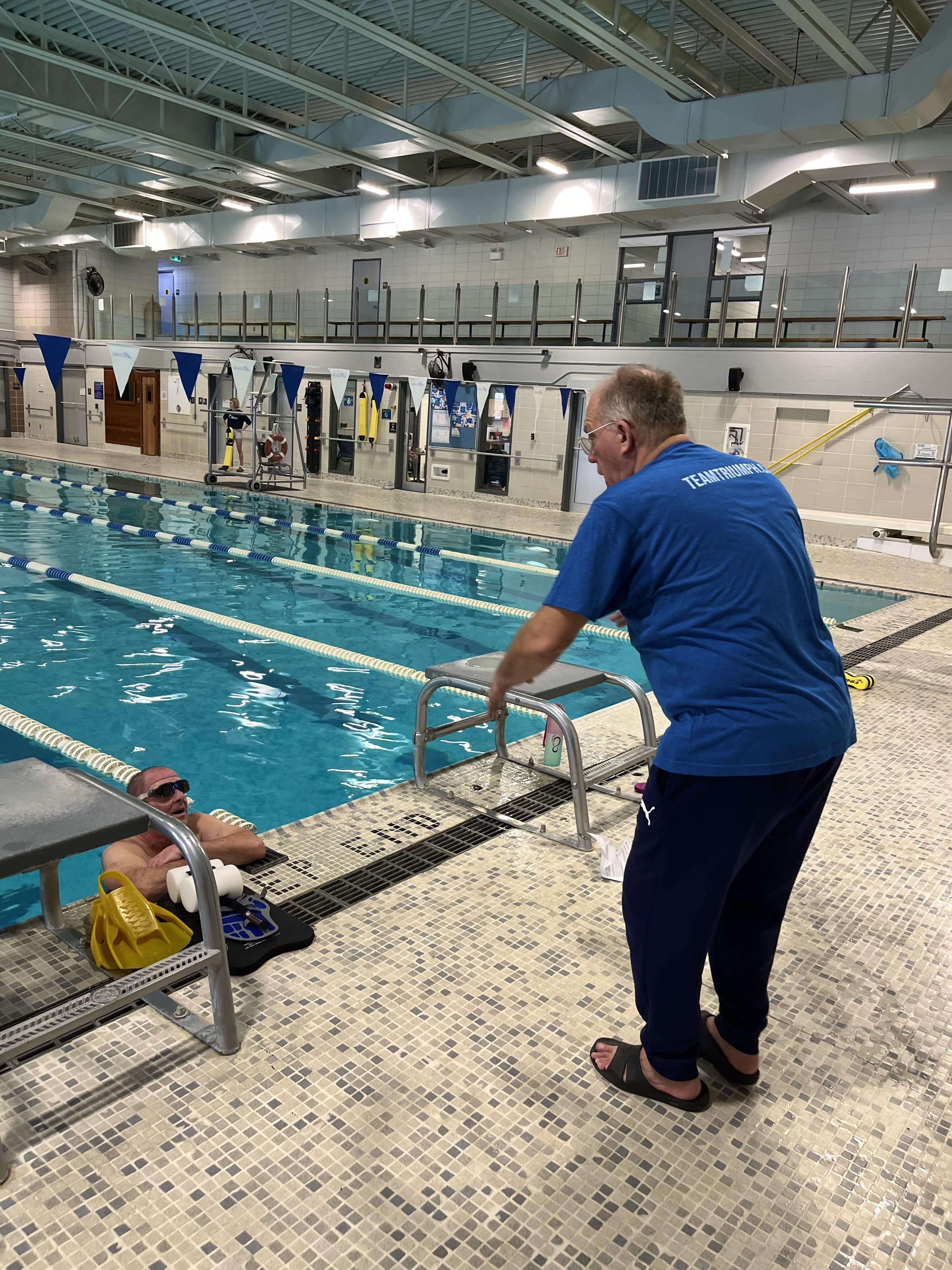
Training for a triathlon especially an Ironman is a big commitment — one that requires time, energy, and focus. While it’s a thrilling challenge for the athlete, it can sometimes become a source of tension in family life. Family members might feel left out, or triathletes may feel guilty about the time and effort their training requires. However, with mutual understanding and a few thoughtful strategies, both athletes and their loved ones can come together to make this journey a positive experience for everyone.
Understand the Time Commitment
Training for a triathlon isn’t just about showing up for race day; it’s about hours of preparation each week. Understanding the time commitment and acknowledging the athlete’s dedication can create a supportive atmosphere at home. Communicate about training schedules and avoid unrealistic expectations regarding time spent together during peak training periods.
Be Flexible and Accommodating
Triathletes have different training sessions for swim, bike, and run, sometimes early in the morning or late at night. Help by being flexible with family schedules. Try to give your triathlete the space and freedom to train without added pressure. Offering to take on more household duties when needed can help your loved one focus on their goals.
Encourage and Celebrate Milestones
Whether it’s completing a challenging workout, hitting a personal best, or simply sticking to the training plan, positive reinforcement goes a long way. Show your support by celebrating these milestones, big or small. A simple “good luck” before a long training ride or a “you’ve got this!” before a race can make a huge difference in their motivation.
Get Involved in the Process
Even if you’re not training for the race yourself, you can still be part of the triathlon journey. Attend races, volunteer at events, or support training efforts by showing interest in the details of the sport. Learning a bit about triathlon will make you feel more connected to the athlete's experience.
Be a Good Listener
Training for a triathlon can be mentally and physically demanding. Offer a supportive ear when your triathlete needs to talk, whether they’re venting about a tough workout or sharing their excitement about an upcoming race. Sometimes, just being present and listening without giving advice is the most valuable form of support.
Take Care of Your Own Needs
Supporting a triathlete can take a lot of energy, and it’s easy to forget to care for yourself. Make sure to take breaks, do things you enjoy, and communicate your needs to your triathlete as well. The healthier and more fulfilled you feel, the more effective you’ll be in supporting them.
Communicate Clearly
One of the biggest sources of tension comes from unclear expectations. Make sure your family understands your training schedule — including your race goals, time commitments, and the importance of certain workouts. Be open about how you need support and where they can pitch in. The more your family knows, the more they can help.
Set Boundaries
While your training is a priority, your family life is as well. Set boundaries with your training schedule and prioritize family events, ensuring that your family feels valued and involved. It’s essential to strike a balance between training and quality family time. Block off “family time” on the calendar and stick to it, even during peak training.
Involve Family in Your Training
Include your family in your triathlon preparations. If they’re open to it, take them on bike rides, runs, or swims that are more recreational. Doing something active together, even in a less intense way, can help them understand the physical demands of your training while also giving you some much-needed family bonding time.
Thank Them Often
Sometimes, the best way to support family members is simply showing appreciation. Let them know how much their understanding, flexibility, and encouragement mean to you. Small gestures of gratitude can go a long way in maintaining a harmonious home environment. A thoughtful note or a small post-race gift can show them you value their support.
Make Your Training Efficient
Time is valuable, so make the most of your workouts. Use tools like structured training plans and set realistic goals to help you stay on track. When you can complete your training with fewer distractions and in a timely manner, it’s easier to balance your commitments to your family and your athletic goals.
Be Mindful of Their Needs
It’s important to recognize that family members might feel like they’re sacrificing too. Acknowledge their patience and support, and ask them how you can help them achieve their goals, too. Whether it’s supporting them in their hobbies or taking over a task they normally handle, demonstrating that you care about their needs helps foster mutual respect and understanding.
Training for a triathlon is a big commitment, but it doesn’t have to come at the expense of family harmony. By being clear and understanding, both athletes and their family members can work together to make the experience enjoyable and fulfilling for everyone involved. After all, a triathlete’s success is often supported by the love and sacrifices of those closest to them — and that’s something worth celebrating.
Julia Aimers
CSEP Clinical Exercise Physiologist
CSEP High-Performance Specialist
Certified Triathlon, Cycling, Yoga and Swimming Coach
USA Cycling Level 2 Coach
Training Peaks Accredited Coach

I would highly recommended Eric and Team Triumph!
Ian Ross

A year ago I could only tread water and had not run since childhood. With the amazing Virtual Olympic course, support, guidance, and tips from of all the folks at Team Triumph I've ended the season with my first Olympic distance triathlon under my belt and am hooked! Really looking forward to the 2025 season and even to the hard work over the winter to prepare. Karen Houle

I wanted to let you know that the Perth triathlon was a great experience, I somehow placed third in my age group! What a supportive group of participants (including Team Triumph athletes), cheering bystanders and volunteers.
Thanks to your swim lessons, I learned the technical basics and gained confidence to get back in the pool after decades. And it was really special doing this with Ann Laidlaw, my bestie for many years. We did a couple of additional swims with Kevin and Team Triumph people, also a great way to continue learning and practicing good technical form.
I will continue with lane swimming and who knows, maybe there's another triathlon in my future!